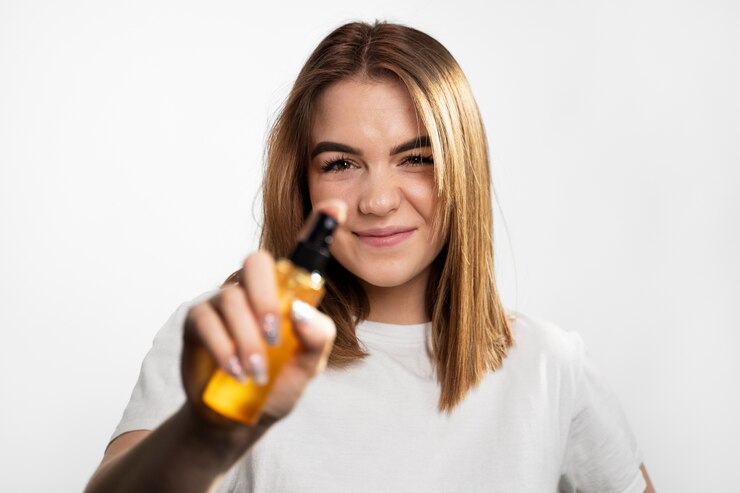Batana oil has been making waves in the beauty world, with social media influencers hailing it as a miracle solution for hair growth, shine, and overall health. But does this golden oil truly live up to the hype, or is it just another overhyped trend? In this article, we’ll explore the origins of Batana oil, its potential benefits, the science behind hair growth, and alternative proven methods for achieving luscious locks.
What is Batana Oil?
Batana oil is derived from the nut of the American palm tree, primarily found in Honduras. For centuries, the indigenous Miskito people, often referred to as the “Tawira” or “People of Beautiful Hair,” have used this oil in their beauty rituals. The oil is extracted through a labor-intensive process of roasting and pressing the nuts, resulting in a rich, golden liquid packed with nutrients.
Many claim that Batana oil is a powerhouse for hair health, but before investing in a bottle, it’s important to understand what’s actually in it and how it may impact hair growth.
Does Batana Oil Really Promote Hair Growth?
Breaking Down the Science
The idea that Batana oil boosts hair growth stems from its rich composition, which includes:
- Antioxidants – Batana oil is believed to be high in tocotrienols, a form of Vitamin E that helps fight oxidative stress. Some research suggests tocotrienols may promote hair growth by improving scalp health.
- Essential fatty acids – These help to nourish the scalp and strengthen hair strands, reducing breakage and dryness.
- Vitamin A & E – These vitamins support healthy skin and hair by improving moisture retention and protecting against environmental damage.
What the Research Says
While the nutrient profile of Batana oil sounds impressive, there is currently no clinical evidence proving that it directly stimulates hair growth. Unlike ingredients such as minoxidil, which has undergone extensive research and FDA approval for hair growth, Batana oil lacks large-scale scientific studies supporting its effectiveness.
That said, anecdotal evidence and historical use suggest that Batana oil may help strengthen and nourish hair, which can create the appearance of thicker, healthier strands over time.
Potential Benefits of Batana Oil for Hair
Even though its hair growth claims are not scientifically proven, Batana oil may still offer several benefits:
1. Deep Conditioning and Moisturization
If you struggle with dry, brittle hair, Batana oil can serve as a natural deep conditioner. Its rich fatty acids help lock in moisture, leaving hair soft and manageable.
Personal Experience: I first tried Batana oil during a particularly cold winter when my hair felt extra dry and lifeless. After applying it overnight as a deep treatment, I woke up with noticeably softer and shinier hair.
2. Strengthening Hair and Reducing Breakage
Hair breakage is a common problem, especially for those who frequently style or color their hair. Batana oil forms a protective barrier around the hair shaft, reducing damage caused by heat and styling.
3. Enhancing Shine and Reducing Frizz
Batana oil’s smoothing properties can help tame frizz and flyaways, making hair look shinier and healthier.
Potential Side Effects & Precautions
While Batana oil is generally safe, it’s important to take the following precautions:
1. Possible Allergic Reactions
As with any natural product, some people may develop allergies or sensitivities. Symptoms may include itching, redness, or swelling. Always perform a patch test on your inner arm before applying it to your scalp.
2. Heavy Consistency May Not Suit All Hair Types
Batana oil is quite thick and may weigh down fine or thin hair. If you have naturally oily hair, you might want to use it sparingly or apply it only to the ends.
3. Cost and Availability
Because Batana oil is sourced from a specific region, it can be expensive and difficult to find genuine, high-quality versions.
Alternatives to Batana Oil for Hair Growth
If your primary goal is hair growth, there are several well-researched alternatives to consider:
1. Rosemary Oil
- A 2022 study found that rosemary oil was just as effective as minoxidil for hair regrowth.
- It improves scalp circulation and reduces inflammation.
- Works best when massaged into the scalp 3-4 times per week.
Personal Experience: I switched to rosemary oil after reading about its benefits, and within two months, I noticed baby hairs growing along my hairline.
2. Caffeine-Infused Hair Products
- Caffeine has been shown to stimulate hair follicles and counteract DHT (a hormone linked to hair loss).
- Shampoos and leave-in treatments containing caffeine can improve hair density over time.
3. Red Light Therapy
- Low-level laser therapy (LLLT) stimulates hair growth at the follicle level.
- Devices like red light helmets and combs are available for home use, though they can be pricey.
4. Scalp Massages and Microneedling
- Regular scalp massages improve blood circulation and nutrient delivery to the hair follicles.
- Microneedling (using a dermaroller) has been found to enhance hair regrowth when combined with hair serums.
5. Biotin and Collagen Supplements
- Biotin (Vitamin B7) supports hair health, though it mainly benefits those with a deficiency.
- Collagen supplements help improve hair strength and elasticity over time.
How to Use Batana Oil for Hair
If you still want to try Batana oil, here’s how to incorporate it into your hair routine effectively:
1. As a Hair Mask
- Warm a small amount of Batana oil in your hands.
- Apply it to damp hair, focusing on the scalp and ends.
- Leave it on for at least 30 minutes (or overnight for deep conditioning).
- Wash out with a mild shampoo.
2. As a Scalp Treatment
- Mix Batana oil with a lighter oil (such as argan or jojoba oil) to prevent excessive heaviness.
- Massage into the scalp 2-3 times per week.
3. As a Leave-In Conditioner
- Rub a drop between your palms and smooth over dry hair to reduce frizz.
Final Verdict: Is Batana Oil Worth Trying?
While Batana oil offers deep conditioning and nourishment, its hair growth claims are not backed by solid scientific evidence. If you’re looking for a proven hair growth solution, consider alternatives like rosemary oil, caffeine treatments, or red light therapy.
That being said, Batana oil can still be a great addition to your hair care routine if you’re seeking hydration, shine, and overall hair health. Just remember to patch test before use and be mindful of how your hair responds.
Have you tried Batana oil? Share your experience in the comments below!




